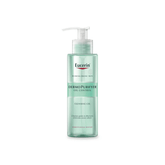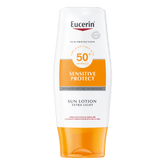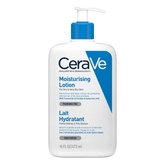How Often Should You Exfoliate in Nigeria?
Your skin is continually exposed to the elements peculiar to a diversified setting, and healthy, bright skin becomes a routine and a representation of your identity and culture. Nigeria's environment and diverse skin types make exfoliation crucial to skin care. Each region brings skincare difficulties and opportunities, from humid coastal to drier inland. This article explores how often and how to exfoliate in Nigeria.
Most skin types benefit from exfoliating 1-3 times per week. For sensitive skin, once a week may be enough to avoid irritation. However, oily or acne-prone skin may benefit from exfoliating up to three times weekly to clear pores and prevent outbreaks.
5 skin types in Nigeria
Understanding your skin type is the first step to healthy, glowing skin. You must know your skin's distinct qualities to adapt your skincare routine. The following are common Nigerian skin types:
- Oily skin: If your T-zone (forehead, nose, and chin) is shiny, you may have oily skin. Oily skin produces too much sebum, causing acne, blackheads, and enlarged pores.
- Dry skin: Dry skin is tight, rough, and flaky or dull. Sun exposure and low humidity can worsen dry skin in Nigeria's drier regions.
- Combination skin: Oily and dry parts of the face define combination skin. Oily T-zone (forehead, nose, and chin) and dry or normal cheeks are typical. This skin type needs to balance moisture without overhydrating oily areas.
- Normal skin: Oil production and hydration are balanced in normal skin therefore, you're lucky. Normal skin has smooth, tiny pores and few blemishes.
- Sensitive skin: Skincare products, environmental variables, and substances can irritate, redden, and react with sensitive skin. Sun exposure, pollution, and harsh weather might increase sensitivity in Nigeria.
Recommended product
6 benefits of exfoliation for your skin
Nigerian skin benefits from exfoliation, a must-do skincare step. A simple skincare routine that includes exfoliation may cleanse, smooth, and rejuvenate skin. Exfoliation can improve skin health and appearance for six reasons:
- Removes dead skin cells from the surface of your skin, revealing a fresh layer. Exfoliating regularly keeps skin fresh and smooth in Nigeria's humid environment, where sweat and pollution can build up.
- Eliminates dirt, oil, and debris that clog pores and cause breakouts. Exfoliation clears pores, preventing acne and blackheads, which are widespread in Nigeria, especially for oily or mixed skin.
- Stimulates skin cell turnover, making skin smoother and more even. By addressing rough spots, uneven skin tone, and blemishes, it helps you attain a velvety, soft, luminous, and young complexion.
- Removes dead skin cells and unclogs pores, allowing skincare products to penetrate deeper and work better. Moisturisers, serums, and treatments can better nourish and hydrate your skin for the best results.
- Boosts collagen formation, which keeps skin tight and elastic. This helps prevent fine lines and wrinkles, keeping you looking young in Nigeria's harsh climate.
- Promotes cell turnover and reveals fresh, healthy skin underneath, brightening dull skin. Regardless of Nigeria's climate or environment, you can get a beautiful complexion that shows off your inner beauty.
6 factors that dictate how often you exfoliate
Maintaining healthy and radiant skin requires knowing how often to exfoliate. Exfoliation frequency is determined by several elements to get optimal outcomes without irritation or injury. How often to exfoliate Nigerian skin depends on six factors:
- Skin type and sensitivity: Frequent exfoliation may be okay for oily or combination skin, but gentler exfoliation is best for dry or sensitive skin. Consider how your skin reacts to exfoliation and alter frequency.
- Climate and environment: Nigeria's variable climate—humid coastal to dry inland—affects exfoliation sensitivity. Exfoliating more often in hot and humid weather may help reduce oil and sweat buildup. In drier climates, less frequent exfoliation may prevent skin dryness.
- Type of exfoliant: Chemical and physical exfoliants are the main types. AHAs and BHAs break down dead skin cells, whereas physical exfoliants employ abrasive particles to remove them manually. Chemical exfoliants are gentler and can be used more often.
- Lifestyle and skincare regimen: Your lifestyle and skincare regimen affect how often you exfoliate. To prevent clogged pores and remove buildup, exfoliate more often if you wear cosmetics or live in a polluted environment. Exfoliating in the evening after cleansing will work better without irritating your skin.
- Skincare goals: When choosing an exfoliation frequency, consider your skin issues and goals. Regular exfoliation may help erase acne and hyperpigmentation by increasing cell turnover. If your main goal is skin health and anti-ageing, a moderate frequency may be plenty.
- Personal skin response: Let your skin tell you how exfoliating affects it. Exfoliating too often or using harsh treatments may cause redness, irritation, or dryness. Adjust your exfoliation frequency and use softer formulas to avoid overexfoliation.
Recommended product
6 skincare expert exfoliating tips
Exfoliation specialists recommend following their advice to get the best effects without damaging your skin. These expert tips can help you exfoliate confidently and get smoother, brighter, and more radiant skin. Skincare specialists propose six exfoliating tips for Nigerian skincare:
- Patch test new products: Before using a new exfoliant, test it on your skin. Try a tiny dose of the product on the inner forearm and wait 24–48 hours for irritation or allergic reactions. This easy step can prevent skin damage.
- Select the proper exfoliant for your skin type: Not all exfoliants are created equal, so choosing the proper one is crucial to the best results. Choose light exfoliants like lactic acid or enzymes for sensitive or dry skin. Salicylic or glycolic acid can unclog pores and decrease oil production in oily or acne-prone skin.
- Don’t overdo it: Exfoliation removes dead skin cells and promotes skin renewal, but overdoing it can cause irritation, sensitivity, and damage to the skin barrier. Avoid over-exfoliating and follow your skin type's exfoliation requirements. Moderation keeps skin healthy and balanced.
- Moisturise after exfoliation: Exfoliation removes skin's natural oils and moisture hence hydration is necessary. To avoid dryness and pain, apply a moisturiser for your skin type soon after exfoliating. This step calms and improves skin health and appearance.
- Protect your skin from the sun: Exfoliation makes your skin more sensitive to UV radiation, making sun protection essential. Even on cloudy days, apply a broad-spectrum sunscreen with an SPF of 30 or more every morning to prevent UV damage and premature ageing. For long outdoor sessions, reapply sunscreen every two hours.
- Listen to your skin: Climate, hormones, and lifestyle might affect your skin's needs. Monitor how your skin reacts to exfoliation and alter your routine. To preserve skin health, reduce exfoliation frequency or use milder products if irritation, redness, or discomfort occurs.
Exfoliation routine for different skin types
Customising your exfoliation routine to your skin type is key for maximum results and health. Follow your skin's cues and adapt your exfoliating routine. Maintaining your regimen and being patient will help you get healthier, more vibrant skin in Nigeria's diverse environment. An example exfoliation routine for different skin types to assist your skincare journey:
Oily, acne-prone skin
- Morning: Use a gentle foaming cleanser to eliminate oil and pollutants. Follow with a salicylic acid exfoliant to clear pores and manage acne.
- Evening: Double cleanse to remove sunscreen, makeup, and pollutants. Apply a benzoyl peroxide spot treatment to active breakouts and follow with a light chemical exfoliation like salicylic acid or glycolic acid to prevent future outbreaks and rejuvenate skin.
Dry, sensitive skin
- Morning: Wash your skin with a non-drying cleanser. Exfoliate less in the morning to avoid drying out your skin.
- Evening: Cleanse again to remove makeup and debris. A gentle chemical exfoliation with lactic acid or enzymes dissolves dead skin cells without discomfort. Follow with a thick moisturiser to hydrate and soothe dry skin.
Combination skin
- Morning: Use a mild cleanser for all skin types. Next, use a lightweight chemical exfoliator with AHAs to treat oily skin and rejuvenate it.
- Evening: Double cleanse to remove makeup and pollutants. Alternate between a moderate chemical exfoliator and a gentle scrub to target greasy and dry areas without overworking the skin.
Normal skin
- Morning: Cleanse with a refreshing gel or cream to preserve balance. To improve skin texture and brightness, use a gentle chemical exfoliation with AHAs or BHAs.
- Evening: Cleanse to remove makeup and dirt. Use a light chemical exfoliator two to three times a week to enhance cell turnover and skin health. Apply a mild moisturiser to seal in moisture.
Read also: 14 Tips For Handling Sensitive Skin In Nigeria
How often should you exfoliate?
Your skin type, sensitivity, and exfoliant determine how often you should exfoliate. Some general guidelines:
- Oily or acne-prone skin: Exfoliate three times a week for oily or acne-prone skin to clear pores and prevent outbreaks.
- Dry or sensitive skin: Exfoliate using light exfoliants once or twice a week to avoid irritation.
- Combination skin: Two to three times a week, focus on oily regions and avoid dry patches.
- Normal skin: Exfoliate two to three times a week without overdoing it.
When adjusting frequency, consider climate, sun exposure, and skin response. Listen to your skin to establish the appropriate balance for healthy, radiant skin.
Conclusion
Nectar Beauty Hub has exfoliation products for oily, dry, sensitive, combo, and normal skin. It helps you reach your skincare goals. Choose from our carefully selected exfoliants to create a customized skincare routine you'll adore. Try our exfoliating products today for healthier, brighter skin.

















